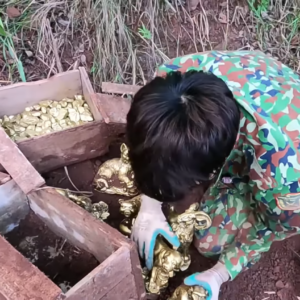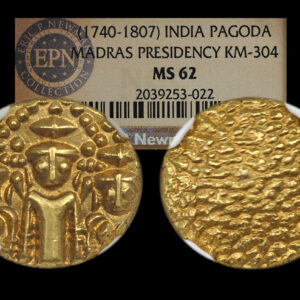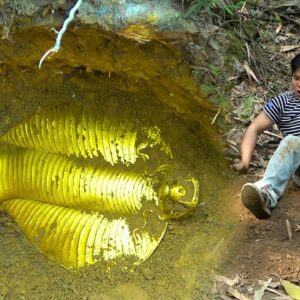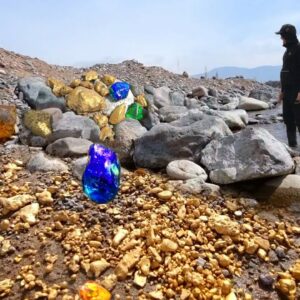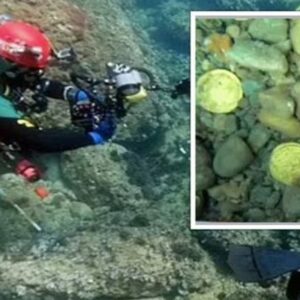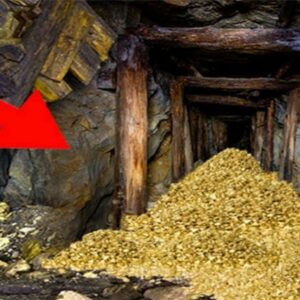
AFP/HEIDI LEVINE – An Israeli archaeologist digs up gold coins dating from the Abbasid Caliphate during a press presentation of the discovery at an archaeological site near Tel Aviv in central Israel on 18 August 2020
Archaeologists in Israel have unearthed an Islamic treasure trove of 425 pure gold coins from the period of the Abbasid Caliphate, which is 1,100 years old, according to the Israel Antiquities Authority.
“The treasure was hidden buried in an earthenware vessel and contains 425 coins, mostly from the Abbasid period. The person who buried it 1,100 years ago must have expected to recover it, and even closed the pot with a nail so that it would not move,” Liat Nadav-Ziv and Elie Haddad, the archaeologists in charge of the excavation, explained in a statement.
“Finding this considerable quantity of gold coins is extremely rare. We hardly ever find them in archaeological excavations. Since gold has always been extremely valuable, it was melted and reused, from generation to generation. These coins are made of pure gold, so they do not oxidise with air, they have been found in excellent condition, as if they had been buried yesterday”, they add.

The discovery, they believe, may indicate that there was international trade between this area and other more remote areas.
Robert Kool, an expert on coins from the AAI, points out that “it is extremely rare to find treasures from the Abbasid period in excavations in Israel, especially gold coins. This one, from the end of the 9th century to. C., is one of the oldest found. The coins are 24-carat gold and the total weight of the treasure is 845 grams, a significant amount of money in those days”.

With that sum, he estimates, its owner would have been able to buy a luxurious house in the best neighbourhoods of Fustat, the capital of Egypt at the time.
Most of the coins date from that century, when the Abbasid Caliphate stretched from Persia in the east to North Africa in the west, and whose centre of government was in Baghdad, present-day Iraq.
The treasure trove contains gold dinars, but also some 270 small pieces of dinars cut up to serve as bargaining chips.
“The cutting of gold and silver coins was commonly used in the monetary system in Islamic countries after 850 BC, when bronze and copper coins suddenly disappeared,” explains Kool.
